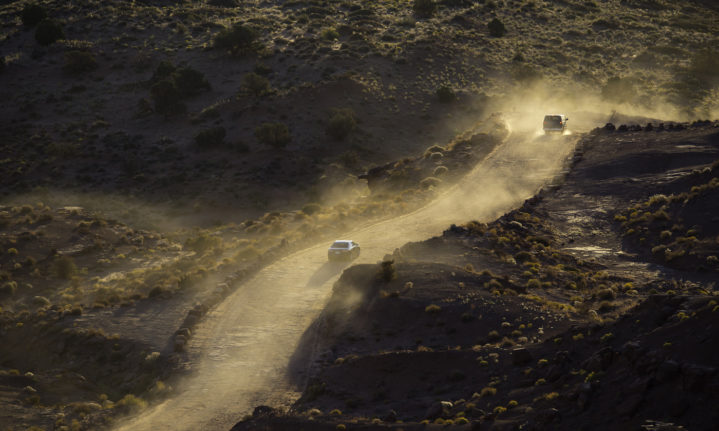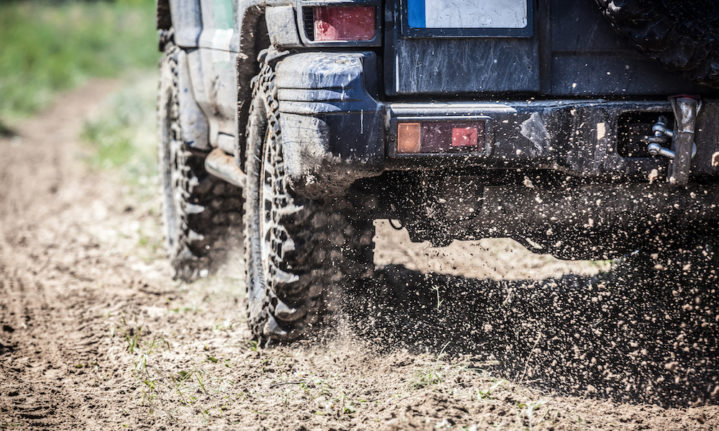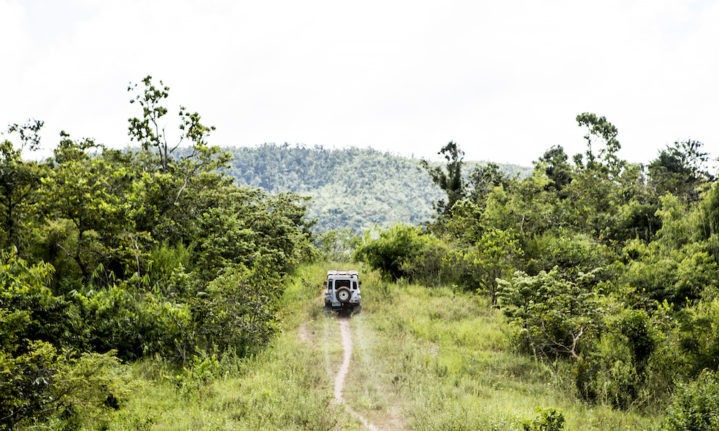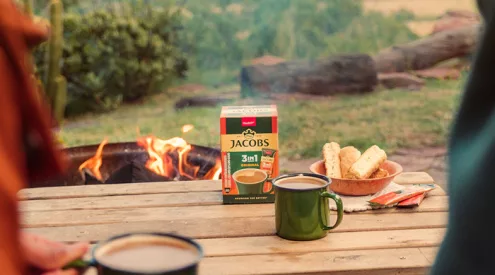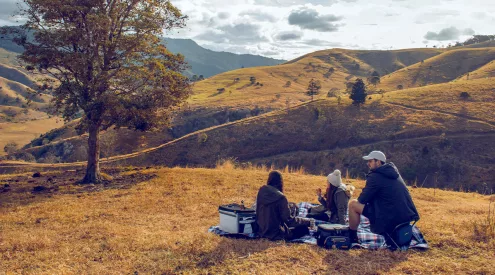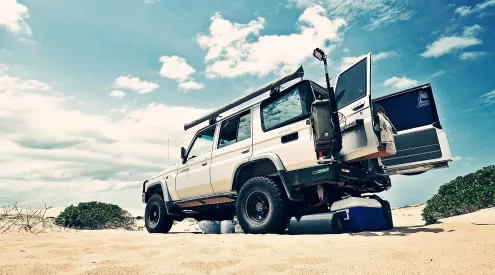Many South Africans take breaks to leave the hustle and bustle behind in exchange for the road less traveled. Auto & General Insurance stresses the importance of having the correct insurance, specific for off-roaders, in place and has also compiled an off-roading safety guide to drive your off-roader like a pro.
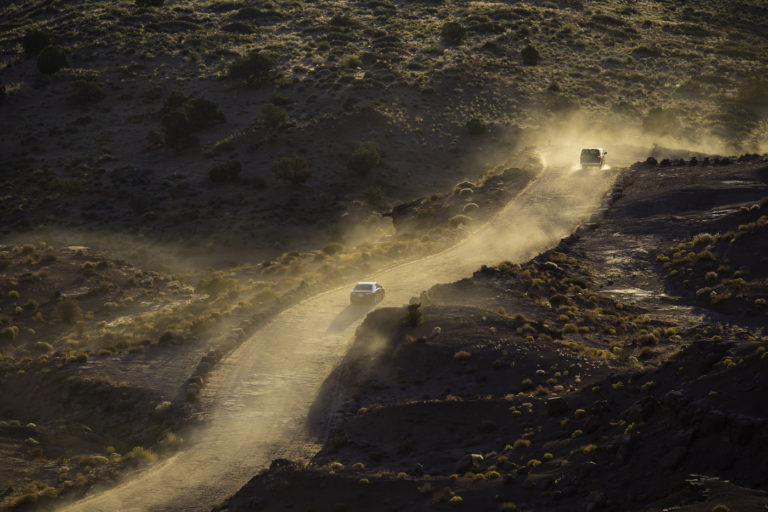
‘For their drivers, off-road vehicles are a lifestyle,’ says Ricardo Coetzee, Head of Auto & General Insurance. ‘Whether you’re someone who just prefers a high vantage point or someone who likes to explore the rugged terrain, it’s essential to ensure that you know your vehicle, its features, and capabilities well, operate it safely, and have the correct off-roader insurance in place in case things go wheels up.’
Coetzee stresses that it’s important to look at insurance that is specifically tailored for off-roaders. Auto & General’s Advensure product, for one, offers cover for your off-roader and its accessories for most eventualities you can encounter on a trail, third-party cover, spare wheel and cellphone kit cover, towing and storage, cover in specified SADC countries and cover for certain medical expenses.
In terms of driving, Coetzee, with the expert advice of Christo van Loggerenberg, Lead Instructor at the Land Rover Experience Centre, provides the following golden rules for off-roaders:
- Safety first: Make sure that your vehicle is roadworthy and well-maintained. Be aware of your environment, and don’t tackle an over-ambitious route. Rather than go around a challenging obstacle.
- Know your vehicle: Whether you have an old-school off-roader or a new machine with all the tech, make sure that you are clued up on its capabilities, features, and limitations.
- Speed savvy: The key to off-road safety is ‘as slow as possible, as fast as necessary’, which implies that one should only go as fast as one absolutely needs to clear an obstacle, but always rather make slow and calculated moves if possible.
- Balanced load: Make sure that your vehicle isn’t loaded beyond its capacity and that the load is properly balanced and well secured. One jerrycan out of place could significantly alter your vehicle’s balance.
- Accessorise wisely: Choose accessories that will help your vehicle to optimally perform its task. Invest in good safety equipment for any off-road emergency. Choose the right tyres for the kind of terrain you aim to tackle. Select front and rear bumpers or bars, as well as protective skid plates, that protect your vehicle, but also allow sufficient ground clearance. Keep a good toolkit handy for basic vehicle and tyre repairs. Have a mobile compressor ready for when you need to inflate tyres. Invest in a good high lift jack, traction boards, and even a winch to get you out of sticky situations. Invest in energy-efficient electric systems to light up your surroundings and make sure that you have a good set of jumper cables handy.
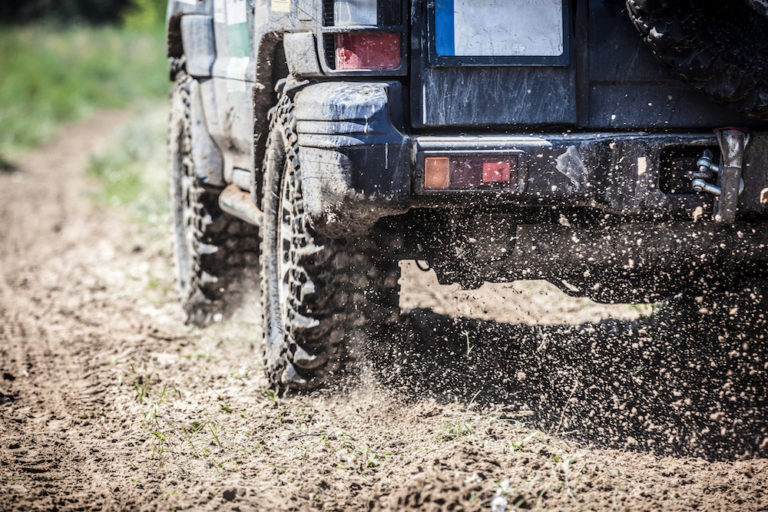
One of the most popular accessories is a raised air intake, often referred to as a snorkel. Contrary to the belief that the raised air intake was designed to give your vehicle an improved wading ability, allowing you to tackle almost any water obstacle, it was really designed for dusty conditions, where there is less dust at a higher breathing point. According to Van Loggerenberg, ‘The wading specification of a vehicle is determined by way more than just the air intake. We need to consider electronics, diff and gearbox breathers, alternators, water ingress points, etc. If only one of these other factors is missed when preparing a vehicle for deep wading, you could cause serious damage to your vehicle.’
When it comes to practical tips for tackling a route safely and effectively, Van Loggerenberg’s extensive training experience has taught him that drivers are often overwhelmed by the sheer amount of rules and principles to remember. He has simplified the most important pointers into what he calls ‘the 3 groups of 3’.
1st group of 3: Approach angle, Breakover/ramp angle, and Departure angle
This relates to whether your vehicle meets the build and performance requirements to make it into and through the obstacle that lies ahead.
2nd group of 3: Reconnaissance (Recce), Risk Assessment, and Responsibility
A Reconnaissance or inspection of your planned route is vital. You need to be sure that your vehicle can handle what is on the other side of the obstacle you’re trying to clear. For example: there might be a deep pool of water on the other side of the hill you’re tackling – one that your vehicle may not be able to get out of.
Risk assessment includes any possible risk to you, your vehicle, and the environment. It includes holes, rocks, trees, slopes, and the possibility of sliding or falling over. For example: the road you’re taking may be at an angle that your vehicle can handle, but a boulder that’s in the way may force it beyond its tipping point.
Responsibility relates to how you react to your assessment above. If there is a risk of anyone getting hurt, anything getting damaged or the environment suffering as a result, rather find a safer route.
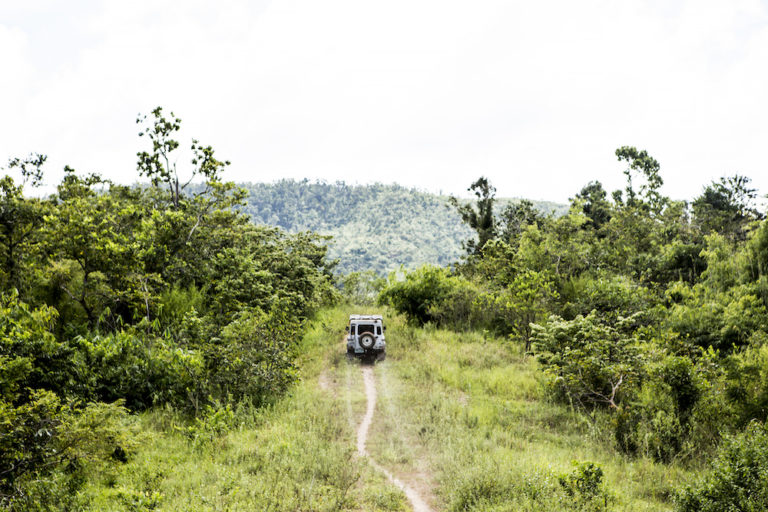
3rd group of 3: Systems & gears, Steering, Pedals
Systems & gears: Engaging the mechanical and electronic aids for a specific challenge is imperative. It involves choosing which systems – like Hill Decent Control, Terrain Response, Dynamic Stability Control, Diff-locks, High- or Low-Range – should be either switched on or off.
Steering: Choosing a good line to drive that gives you the best chance of clearing a specific obstacle is absolutely vital. Also, have a plan B in the event that your initial line doesn’t yield the desired results.
Pedals: It’s crucial to balance the use of the pedals – especially the accelerator and brake – to apply exactly the right amount of power and torque where needed and exactly the right braking power. Even though modern vehicles can do most of the work, it’s well worth practicing these skills, as a mistake could lead to catastrophe.
Coetzee concludes, ‘Ultimately, be informed, well-prepared, and vigilant, and make sure you have comprehensive insurance cover in place in case your trip turns into more of a bundu-bash than planned.’
Pictures: GettyImages
Follow us on social media for more travel news, inspiration, and guides. You can also tag us to be featured.
TikTok | Instagram | Facebook | Twitter
ALSO READ: Pothole claims are mounting









